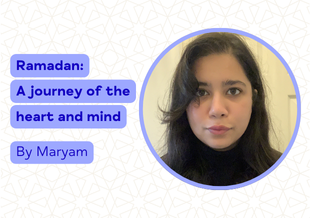Heads Up Cup scores big for mental health
Supporters of Bradford District and Craven Mind came together for an afternoon of football and […]
Hi, my name is Jayne Croston, and I work at Safe Spaces for Bradford District and Craven Mind. I have two roles within the service: Inequality Link Worker and Perinatal Lead.
My role within Safe Spaces is to network with voluntary and statutory organisations, as well as community groups, grassroots organisations, and perinatal services, to help promote Safe Spaces and make it more accessible and diverse for the global majority communities, within Bradford, Craven and Airedale.
Previously, I have worked in perinatal mental health support in the Inpatient Mother and Baby Unit in Leeds, for mums with severe postnatal depression and postpartum psychosis, and also in the community in Bradford, supporting mums with mild to moderate perinatal mental health issues.
As it’s Maternal Mental Health Week, I want to talk about what perinatal mental health is, what you can do to help manage your symptoms, and how you can be supported by family, friends, and other organisations.
Perinatal mental health problems can happen during pregnancy and after you’ve had a baby. They include:
Antenatal: Before birth
Postnatal : After birth
Perinatal: Describes the period from conception to 1 year, following the birth of the child
Most women can experience some tearfulness and low mood a few days after birth, but if the problems continue, you may be suffering from postnatal depression or another perinatal mood disorder. Symptoms are different for every mum but may include:
Parents can look after their mental health by supporting each other, emotionally and practically. Accept any support offered by family and friends and keep talking to your midwife, health visitor or GP. Local prenatal and postnatal support groups can also be a great opportunity to get to know other parents and find a community.
Make sure you are checking in with Mum to see how she is, and listen to her concerns. Having a baby is exhausting; mentally, physically and emotionally, and sleep deprivation has a negative impact on mental health and the ability to cope with challenges. Friends and family can support new parents by encouraging mums to rest when the baby is sleeping. It may also be helpful to offer to look after the older children, tidy up the home or do a food shop for the family. Encourage the parent to speak to their health visitor, midwife or GP if there any concerns around their mood, and if they are hesitant to get help, take a look at the suggested resources below.
Perinatal mental health problems are usually treated by a combination of medication and talking therapies. A GP can prescribe you medication and refer you for talking treatments. Alternatively, you can refer yourself directly to NHS Bradford District and Craven Talking Therapies, without going to a GP.
There are many reasons why you might develop a mental health problem, nobody knows exactly why they happen. Some perinatal mental health problems have clearer causes, for example, a difficult birth can cause postnatal PTSD. But, for many people, it can be a combination of factors that cause a perinatal mental health problem, such as biological causes, lack of support, difficult childhood experiences, experience of abuse, low self-esteem, or infant loss or miscarriage.
No matter the reason, having a baby is a major life event, and you deserve to receive the support you need for your mental health.
Posted on: 2nd May 2024

Supporters of Bradford District and Craven Mind came together for an afternoon of football and […]

Reflections on the launch of Bradford 2025, UK City of Culture, from Ian, Trustee on […]

What’s really involved in being a trustee for a mental health charity? Find out from Ruth and Rosema.

Maryam is one of our volunteers at Bradford District and Craven Mind. She has kindly […]